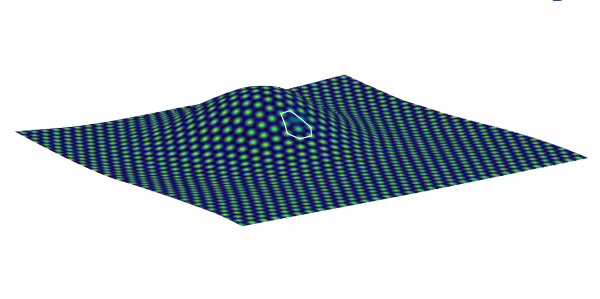Ordering and defects on deformable surfaces

Elastic and plastic properties of thin sheets have been found responsible for peculiar behaviors of biological and physical systems and enabled remarkable technological applications. However, theoretical frameworks that comprehensively study the interplay of deformations, defects, and evolving film morphology, are missing, primarily due to the complexity related to the bridging-scale nature of the emerging phenomena. In this project, we develop a mesoscale framework to study positional ordering and defects on deformable surfaces. We aim at closing the gap between macroscopic descriptions of elastic films and microscopic material models that resolve interactions between objects such as atoms or cells. For this goal, we will consider two mesoscale modeling approaches and develop their extension to non-flat domains. Positional ordering and defects in crystalline solid or colloidal structures will be investigated by the amplitude expansion of the phase-field crystal model, which handles elasticity and plasticity at the mesoscale without resolving atoms but retaining details of the crystal structure. Orientational ordering and deformable interacting objects, e.g., cells in epithelial tissues, will be modeled by a multi-phase-field approach governed by Allen-Cahn type equations and coupling with director and Q-tensor fields. Formulations suitable for non-flat domains will be developed via a general graph formulation. The implementation in a suitable finite element framework will be developed and exploited for numerical simulations. With the resulting framework, we aim to address relevant questions such as defect motion and stability of defect on deformable surfaces, strain-induced ordering, response to prescribed curvatures, and surface-buckling in epithelial tissues. Also, we will devise microscopically informed continuum models for macroscopic investigations.






